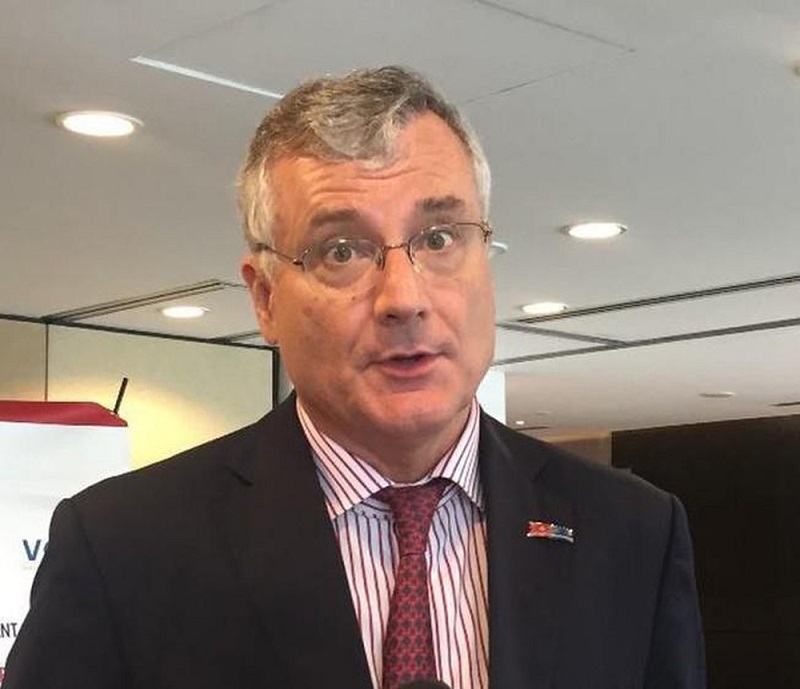Vietnam represents appealing market for EU investors beyond EVFTA
VOV.VN - With the EU-Vietnam Free Trade Agreement (EVFTA) an important factor in attracting EU investors, it is not the only reason why financiers are interested in the nation, according to Nicolas Audier, chairman of the European Chamber of Commerce in Vietnam (EuroCham), speaking during a recent media interview.

Discussing the impact of the EVFTA on investors, Audier mentioned some of the factors that affect the decision making process of EU financiers in the country.
Since its implementation, the EVFTA affects all aspects of the economy as a whole, with the EU itself representing a large economy, comprising of 27 member states after Brexit. Indeed, many countries are lining up to sign a trade agreement with the European bloc.
In ASEAN, only Singapore and Vietnam have managed to signed a free trade agreement (FTA) with the EU. Whilst Singapore plays an important role as the financial hub of the region and does not have many production activities, this represents an opportunity for the nation, which has plenty of advantages to boost its production, therefore making it easier to attract a large flow of capital.
Through the EVFTA, there will be increased high-tech investment that will be brought into the country in the near future, he added.
In terms of which investment fields domestically that businesses from the bloc are most interested in, many EU firms are investing in the nation in the form of mergers and acquisitions (M&A) and joint ventures. In particular, approximately EUR6 billion from the EU is poised to be invested in the new Vietnamese energy sector, with European businesses being interested in energy and green fuel production.
This represents a major infrastructure construction project that is about to take shape locally, with plenty of major European companies investing in the country’s new technology, infrastructure, and environmentally friendly industries, the EuroCham chairman said.
Some of the issues that most concern EU businesses are not costs and taxes, but also labour laws, technologies used locally being environmentally friendly, and ensuring sustainable development.
Vietnamese businesses that strive to export to the EU must meet these requirements, along with other standards such as quota requirements and product quality, especially gender equality, he noted.
At present, the Vietnamese Government is making great efforts to improve the legal system and becoming more open to foreign investors. Currently, foreign financiers are able to propose and work directly alongside the Government, with EuroCham being appreciative, noting that few countries are open in the same manner as the country.
Upon being asked what attracts EU businesses to invest in the nation, the EuroCham official said EU investors are attracted not just because of the EVFTA, although it is an important factor. Whilst the trade deal has made the EU more understanding and pay greater attention to the Vietnamese market, many choose to invest simply because of the attractiveness of the nation. Following the implementation of the renewal (Doi Moi) process, the country is fast emerging as an attractive investment destination. In addition, with the country’s strategic geopolitical position, it will be a springboard for multinational companies to penetrate the ASEAN Economic Community as a means of achieving greater penetration in the Asian market.
As a means of helping Vietnamese businesses join the supply chain of EU businesses, Audier stated that the country has been participating in the global supply chain. The Vietnamese Government has been focusing on supporting the development of small and medium private enterprises (SMEs), with private enterprises increasingly having a voice and a more solid foothold in the current economy.
One key issue remaining is to further improve local infrastructure systems, such as roads, bridges, airports, and ports. These represent important factors in developing the global supply chain, therefore helping the nation draw major foreign enterprises.
The country must also improve the quality of human resources with more and more methodical investment in terms of the vocational school system which will allow human resources to meet the requirements of foreign investors moving forward, he said.
